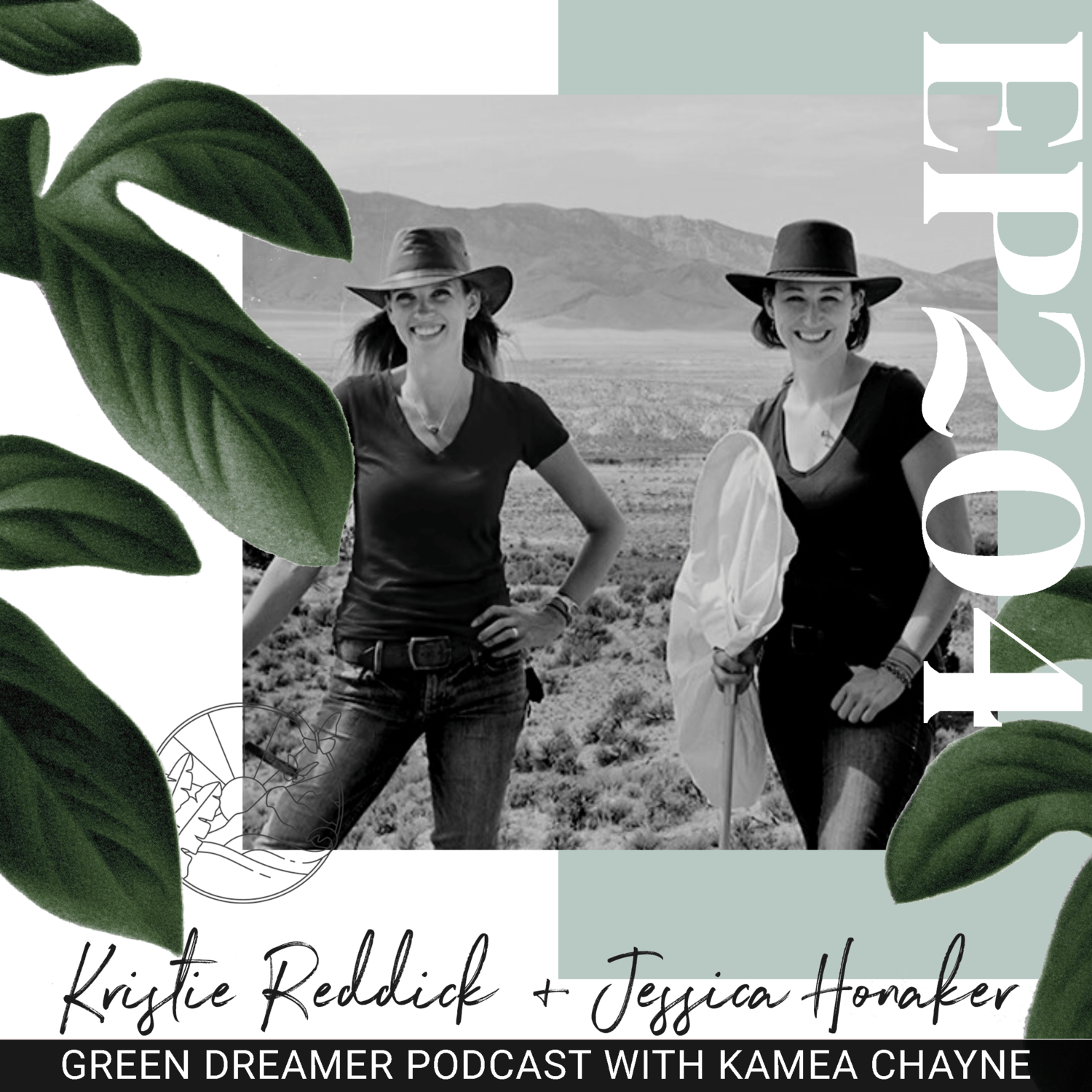What arthropods can teach us about social-emotional learning (interview with kristie reddick and jessica honaker of the bug chicks)
Entomologists Kristie Reddick (@reddickkris) and Jessica Honaker (@rekanoh) are the co-founders of The Bug Chicks (@thebugchicks). They teach about arthropods using educational programs and videos that are positive, fun, and that promote girls as role models.
Realizing the wealth of wisdom humans can learn from how arthropods behave, they launched a curriculum called Different*, which uses entomology to simultaneously educate on Social-Emotional Learning.
In this podcast episode, Kristie and Jessica shed light on whether there is any evolutionary reasoning behind our fear and aversion to bugs; how arthropods have shaped our modern human civilization throughout the course of our history; and more.
To start, get a glimpse below into the conversation between Kristie and Jessica and Green Dreamer Podcast's host, Kamea Chayne.
(*If you're interested in using their curriculum for your students, for your team, or to learn from yourself, Kristie and Jessica have generously offered a discount code for you: “BUGDREAMER”.)
Musical feature: Trust The Sun by Power to Change by Luna Bec
“When we have monocultures with no diversity of any animal life, we’re robbing the ecosystem of what it does best, which is self-regulating and self-balancing.”
If you feel inspired by this episode, please consider donating a gift of support of any amount today!
This is a conversation on Green Dreamer with Kamea Chayne, a podcast and multimedia journal illuminating our paths towards ecological balance, intersectional sustainability, and true abundance and wellness for all. This preview has been edited for clarity. Subscribe to Green Dreamer Podcast on Apple Podcasts, Spotify, Stitcher, or any podcast app to stay informed and updated on our latest episodes.
On how pesticides impact the larger agroecosystems:
"Pesticides are indiscriminate—they will kill the beneficial insects that eat the pest insects, too.
In my studies, in the sections that were sprayed with pesticides, we didn't see things like spiders, praying mantises, or ladybugs—those are things that keep pests in control.
The more of them you have, the more robust the agro-ecosystem's health will be, because they help control those pest insects.
So, if you're spraying pesticides, it's not just the pest insects you're killing; it's all the other ones that are doing ‘natural pest control’ for you, also.
And because insects are such an important part of the larger food chain, when you use a pesticide that is indiscriminate in nature and you're losing both pests and beneficial insects, then you don't draw as many birds or bats that also help to create a healthy agro-ecosystem.
When we have these monocultures with no diversity of any animal life, we're robbing the ecosystem of what it does best—self-regulating and self-balancing.
On how arthropods relate to social-emotional learning:
"When people are anonymous online, they say things that they would never say in public. But now, we're becoming that anonymous way of being even in public—we're saying things in person that we don't necessarily believe or know the impact of.
And our screens give us a couple degrees of separation from reality.
You see something through a screen and you're removed from it, so if someone is filming a bullying incident, the person filming it is not going to feel responsible, because it's almost like they are watching a movie.
[I've always] thought that I could use bugs to talk about prejudice or about how different isn't bad. This idea has since grown into a curriculum we just launched called Different, a social-emotional learning curriculum using arthropods.
What we've done is, we're using that concept of being removed or being secondary to our advantage.
We've seen this for years in the way that we teach, where we can look at an arthropod and go:
‘Hey, this is different, and you thought it was bad. So let's talk about what it really is. If we're afraid of something, let's learn about it—we can turn fear into fascination.
Now, let's take that different perception and think about how we can change our perceptions of ourselves, others, and the natural world.’”
Final words of wisdom:
“Put your small eyes on. The world is incredible, and if you're afraid of something, learn about it and turn your fear into fascination.”

